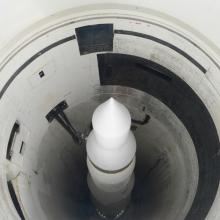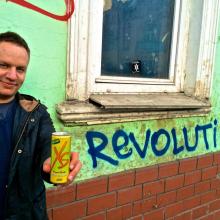crimea

Image via www.GlynLowe.com/flickr.com
On Jan. 11 the Senate confirmation hearing for former Exxon Mobil CEO Rex Tillerson, for the office of Secretary of State, began, reports NPR. In his hearing Tillerson admitted to the Senate Foreign Relations Committee that he has yet to discuss with President-Elect Trump U.S. foreign policy as it regards to Russia.
He also made a statement that seemed in partial opposition to the use of sanctions against Russia and other countries, stating that they “are going to harm American businesses.” However, he relented to the idea that sanctions have the ability to be a “powerful and important tool.”

Image via Zack Frank / Shutterstock.com
In the historic port city of Yalta, located on the Crimean Peninsula, I visited the site where Churchill, Roosevelt, and Stalin, in February of 1945, concluded negotiations ending World War II.
These leaders and their top advisers were also present at the creation of the United Nations and other instruments of international negotiation and non-military cooperation. Tragically, the creation of the “Cold War” was underway soon after.
“What did you do on your summer vacation?”
Even now students may be answering that question in essays at the start of this new school year. Maybe you wrote such a paper years ago. No matter what you did or where you went this past summer, it was almost impossible to escape the heaviness of the headlines. #BringBackOurGirls has become a distant refrain, almost forgotten beneath the crush of summer tragedies:
Thousands of children traveled alone from Central American countries to enter the U.S. as refugees. Ebola deaths spread to more West African nations killing hundreds including many health workers. The forces of ISIS, intent on carving out an Islamic caliphate, took over major Iraqi cities and beheaded a U.S. journalist in Syria. Russia usurped Crimea and threatened the rest of Ukraine. The U.N. refugee agency announced in late August that “the number of refugees, asylum-seekers and internally displaced people worldwide has, for the first time in the post-World War II era, exceeded 50 million people.” Gaza has been reduced to rubble while Hamas rockets still fly toward Israeli cities. Michael Brown, an eighteen-year-old African American man who might have started college this week, was shot and killed by a white police officer in the waning days of August.
After such a summer, how can we do anything but scoff at Paul’s words from Romans?
Some day soon, pop music will start wafting through the urban canyons where I live.
Styles will collide, and they certainly will drown out spring birds. But no matter. The longest winter on record — or at least the longest since last year — will have ended, and the city can breathe its annual sigh of relief.
We did it. We survived the snow and bitter cold. We survived urban indignities like skyrocketing rents and public servants who care little for the public or for serving. We survived snow days when families who depend on public schools not only for education but also for day care and basic nutrition found themselves trapped, and entitled folks complained when schools were kept open after snow to serve those basic human needs.
Intending it as a compliment, a friend described my work in in Kiev last weekend as “selling sodas in Ukraine.”
He’s right. I was in the embattled city to represent a company I helped co-found and our Southern California energy drink brand in meetings with more than 10,000 Ukrainian independent business owners.
It was as simple as that and also so much more.
Like Bono, I believe free enterprise is a cure for all sorts of poverty — economic, political, and spiritual.
The news coverage of international conflicts can be very disappointing from a mimetic perspective. When conflicts escalate into violence as in Syria or the Ukraine, news outlets rush to cover the hostilities. They give us the facts on the ground, or rumors thereof, accompanied by an almost mindless report of what each side is saying by way of self-justification. However, if you listen to their rhetoric with mimetically tuned ears, which happens after spending time here at Raven, you realize that their rhetoric is all sound and fury signifying nothing. Unfortunately, it is this “nothing” that usually makes the headlines.
Major outlets like the New York Times rarely give as good an analysis as my colleague Adam Ericksen did last week. Speaking of the crisis in Ukraine, Adam said that we often think conflict is the result of differences. But the truth is that rivals resemble each other in often surprising ways. They are in conflict because they share the same desires and so are locked in a competition for something that they cannot or will not share. In the case of the conflict over Crimea, the “thing” is not the region but power and prestige. Adam explains:
Russia’s desire for power is mimetic, or imitative, and modeled on its rival for power, the United States. Russia wants what the United States has — the prestige of being a global super power — and Russia is willing to use the same methods that the United States has used to gain and sustain that prestige — violence.



